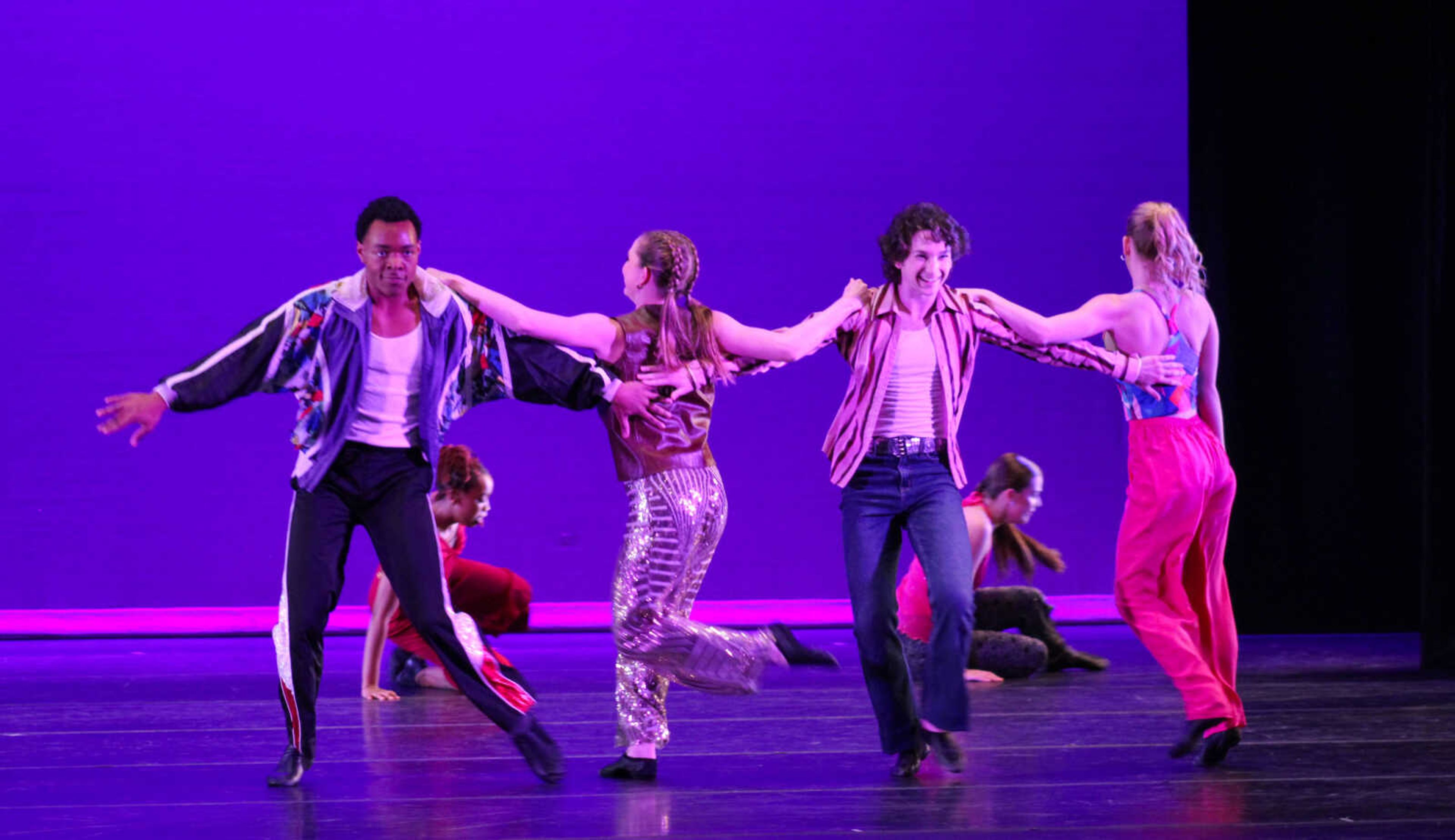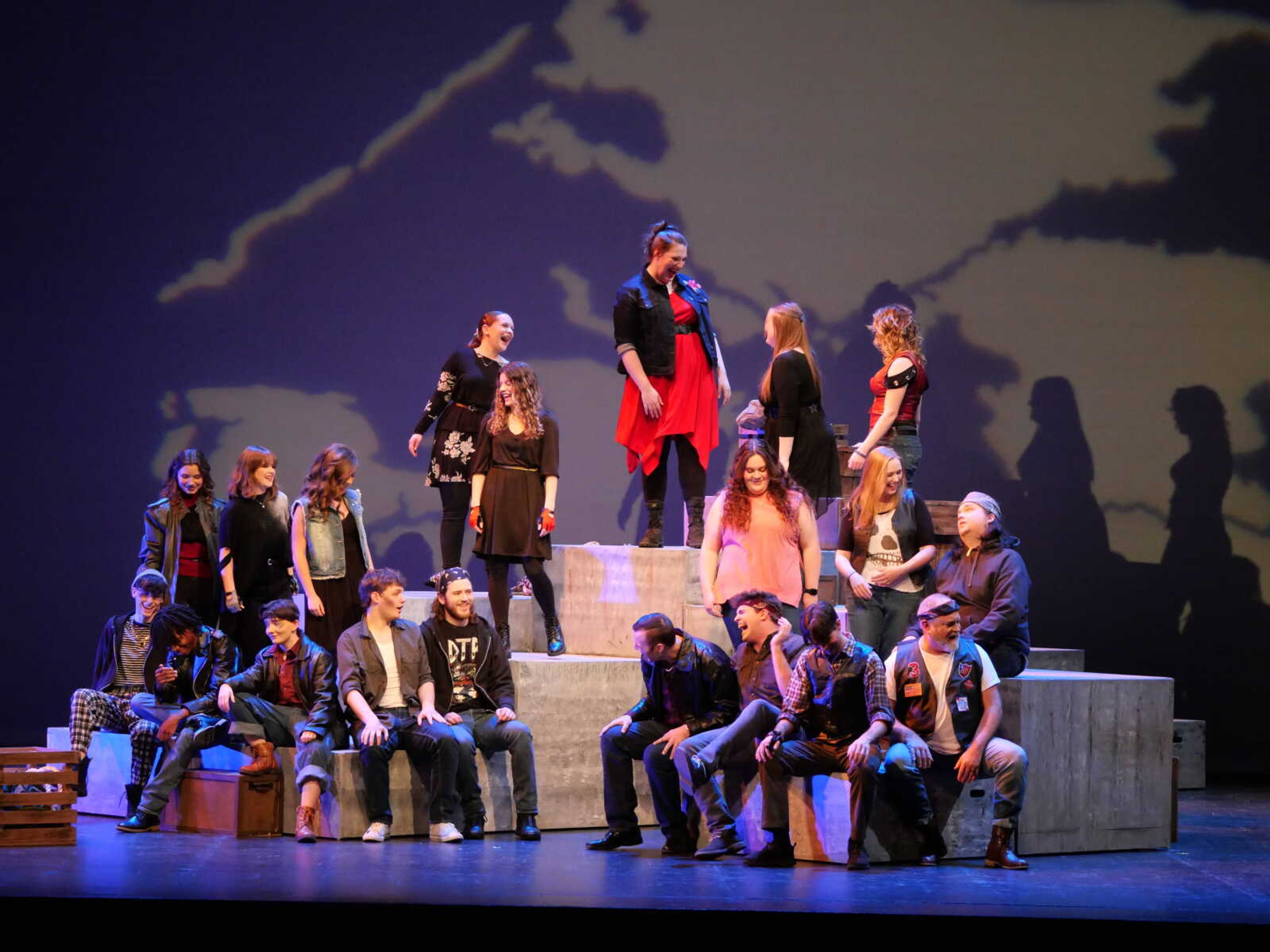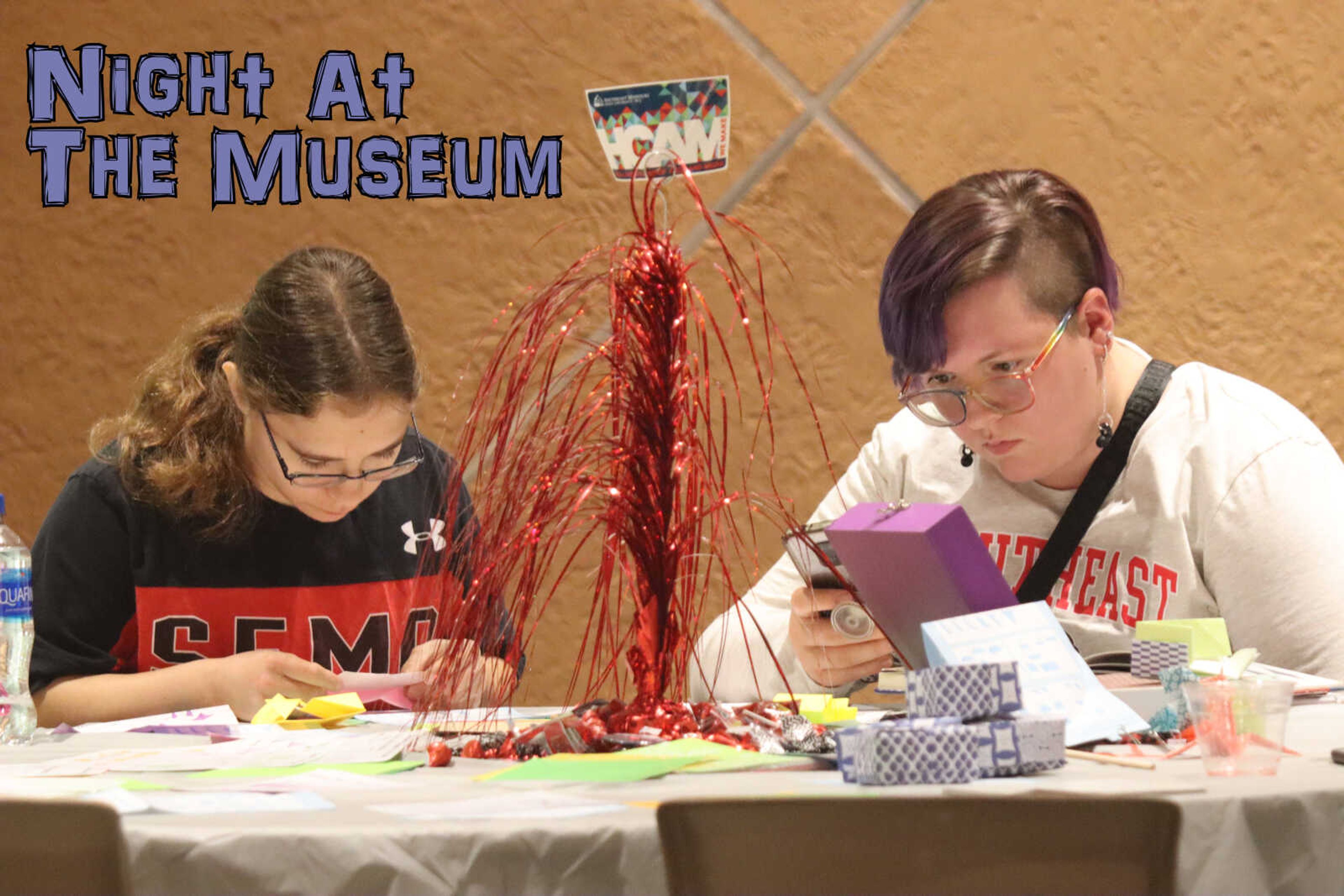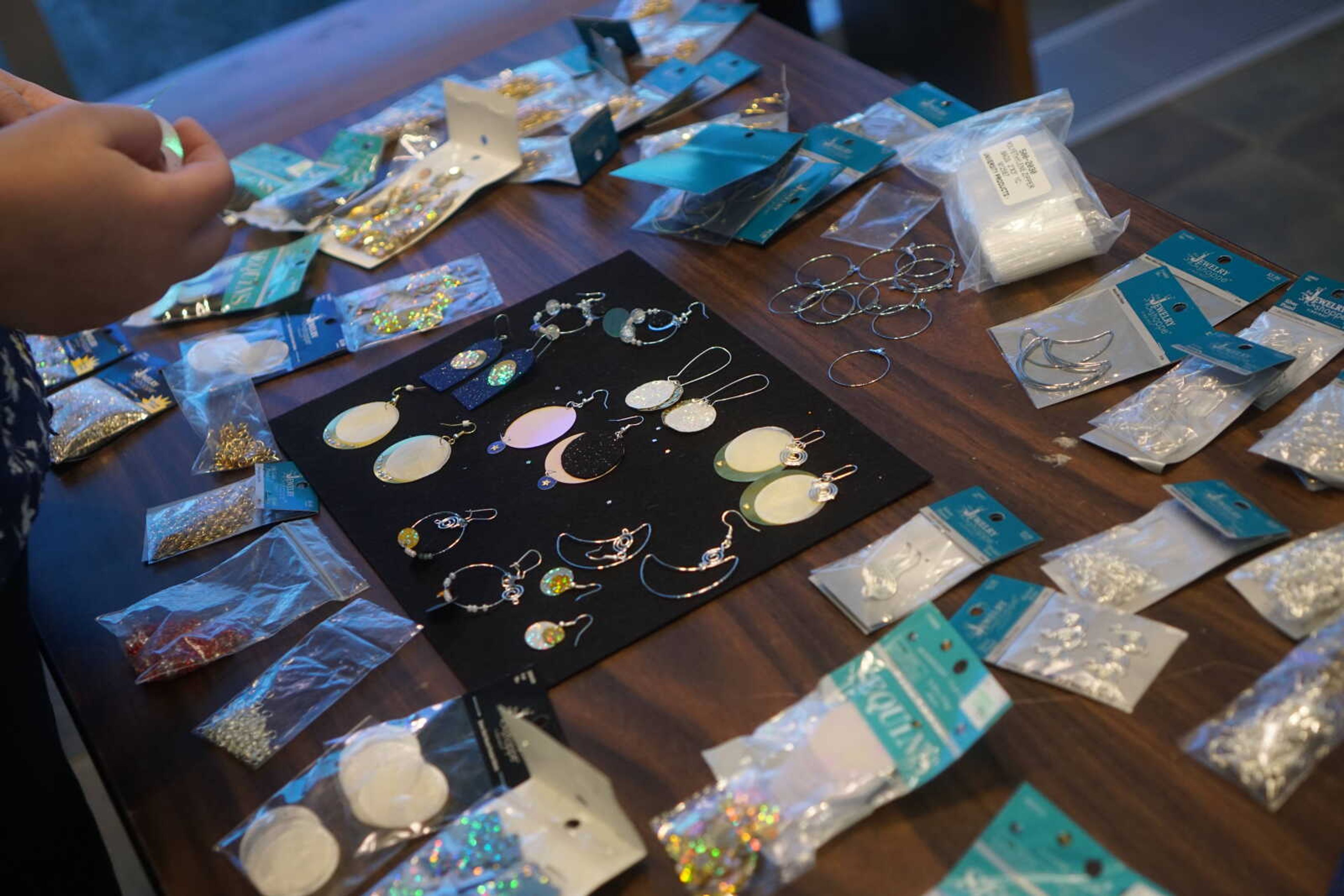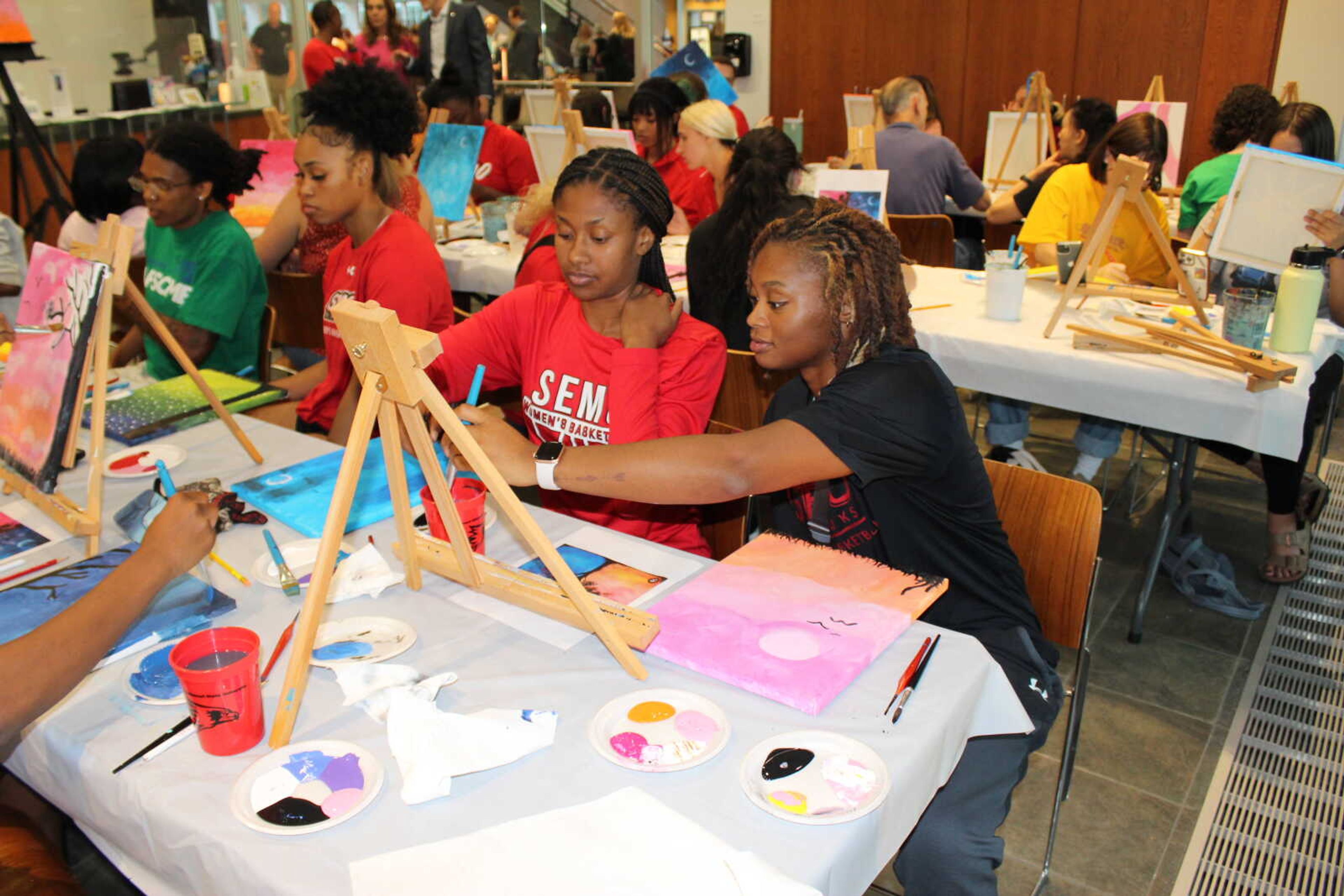A milestone symbolizes an important peak of achieving a celebratory goal. At Southeast Missouri State University, the musical “Big River” will be presented in honor of the milestone that is the River Campus’s 10-year anniversary.
“Big River” is scheduled to be performed at the River Campus’s Donald C. Bedell Performance Hall at 7:30 p.m. on Feb. 22, 23 and 25; 8 p.m. on Feb. 24; and 2 p.m. Feb. 26.
“Big River” is a Broadway musical production that is adapted from Mark Twain’s timeless 1884 novel “The Adventures of Huckleberry Finn.” The story of “Big River” focuses on Huckleberry Finn, a young man who comes from a tumultuous family dynamic, and Jim, a slave who is fighting against all odds for his freedom. The pair, who come from polar opposites of the social spectrum, find a friend in each other and are ultimately there to the end to determine Jim’s fate toward freedom.
Freshman Nick Kuchem, who plays the role of Huck, said he noticed that how adventurous Huck is throughout the story is reminiscent of how he was when he was a young boy.
“His adventurous spirit and his happy-go-lucky attitude for most of the show was a lot like me when I was a kid, and it was a lot of fun to play a kid again and go back to that,” Kuchem said.
Dr. Kenn Stilson, professor of acting and directing and chair of the Conservatory of Theatre and Dance at Southeast, was the brain behind “Big River” upon its debut to the River Campus, and he still is the visionary behind the story ten years dating its anniversary.
“I started all over, I didn’t even keep my notes from the original production,” Stilson said. “This is not a remounting of that production. We treat this as an original production, so we start all over and that even means conceptually, we start all over on how we approach ‘Big River.”
Stilson believes Twain was well ahead of his time when he wrote “The Adventures of Huckleberry Finn” because of how relevant the story is in present-day America.
“He was writing in the 1880s so he was writing post-Civil War, but he was writing about a world that was pre-Civil War and he was very much an abolitionist,” Stilson said. “He was very much against slavery and the treatment of the black culture. He was very what we would term today as liberal, open-minded, progressive.”
Stilson said some of his African-American students had difficulty placing themselves in their character’s shoes because of how their character was treated.
“It’s still a really difficult thing to do to get into the clothing and see the world through the eyes of an African-American in 1840 who is not even looked at as a person,” Stilson said.”They were looked at as property and that’s really, really difficult.”
Some of the actors who are not African-American also had difficulty getting in character. in placing themselves as the role of their character.
“Imagine if you’re a white male who is cast as one of the slave owners. But if you’re a white male who is perhaps homosexual, progressive, liberal and you’ve been cast as a white slave owner who has to say the N-word and you have to embody that, that’s as difficult to do for a white actor as it is for a black actor to play a slave,” Stilson said.
Sonia Rucker, coordinator of Institutional Equity and Diversity, was invited by Stilson to attend some of the rehearsals as an opportunity for students to talk and discuss the issues of having to play the role of slaves and slave owners.
“To present day liberal, enlightened, young actors who are white and black, it’s difficult to play both those roles and we had to deal with that,” Stilson said.
As the director, Stilson teaches his students the message of not judging the character while they are playing them.
“We have to look at the world through their eyes and approach them inside and out, and that’s a difficult thing to do with anybody that you play,” Stilson said. “So that’s something that all actors have to grapple with, especially if you’re playing somebody who is considered reprehensible, which is a lot of people in the show.”
While some people may argue that the storyline of “Big River” is controversial because of its usage of the N-word and because of its portrayal of slavery, Stilson feels it’s important for the story to be told accurately and authentically.
“Can’t sanitize it because if you sanitize it then again you’re sugarcoating,” Stilson said. “That’s like saying, ‘Oh, that civil rights thing, oh, that was nothing.”
Judith Farris, artist-in-residence in voice and musical theater instructor, served as the vocal director for the first performance of “Big River,” and will end her time at Southeast for the final curtain call as the vocal director once again for its 10-year anniversary.
“I’ve come full circle. How fitting is that, that I started, that was our first show here and this is the 10th anniversary, so it was decided to do it again, I think that’s a good idea,” Farris said.
Farris describes the vocals in the production as having a down-to-earth tone that are unlike most classical Broadway shows.
“It’s just got rhythm in it. It’s just going to be great [for all tastes of music],” Farris said. “In other words, I don’t think there’s anybody that wouldn’t see anything musically that they wouldn’t latch onto and like. I’m pretty sure about that.”
In the production 10 years ago, Farris said she had to go out into the community to find African-Americans who could play roles in the musical.
“I remember having to go out being from the community and knowing a few people going to a black church, talking to a fellow who taught at junior high school and had a lot of students with more diversity of course in a public school and recommended some people,” Farris said.
Brodrick Twiggs was a freshman in high school at the time and a former student of the junior high school teacher when he was invited for a role in the production. Twiggs, who is now an alumni of Southeast, is returning for the anniversary in the role of Jim.
“Mark my words, when he sings ‘Free At Last’ near the end of this show it will just be a showstopper, literally,” Farris said. “It will stop the show.”
“Free At Last” is one of those songs Farris considers to be universal, like “God Bless America,” because of its representation of what a free country is.
“For me it’s as moving as a real patriotic song that we all embrace because of our gratitude for being in a free country,” Farris said.
Music plays a prevalent role in how well the story can still have the same essence captured 10 years later. Josh Harvey, instructor of musical theater and director of music for “Big River,” said the goal of the music was to create this feeling of nostalgia and “old-timey” vibes while still staying true to the 1840s era.
“So it kind of uses these really early American folk forms blues, bluegrass, country and gospel,” Harvey said. “The whole show is set up that way so that we’ve got a really small band down here (in the pit), which is the brass, like New Orleans kind of brass. The band on stage will be violin, harmonica and guitar, so it’s more of like a road band or touring band that would’ve been around in the 1840s.”
Like Farris, Harvey also coined “Free At Last” as the standout piece of the production. Harvey said he thinks the song is powerful because of Jim’s questioning of why he hasn’t been freed yet.
“I think that song resonates, but it’s also designed to be that 11 o’clock number,” Harvey said. “It’s supposed to be the song that arouses those emotions before the end of the show.”
“Big River” is one of those productions that doesn’t have much dancing in it. However, there are some movements within the production that flow accordingly with the storyline.
Michelle Contrino, instructor of dance and director of dance for the production, said early on in rehearsals she over-choreographed the steps, but Stilson provided a clearer description of how the movements should be.
“The movement should really be more pedestrian and more organic to how people would move, whether they’re young boys, they’re older women,” Contrino said.
Contrino said the young men in the production have more playful dance numbers than the women.
“There’s one section in the musical and it’s called ‘When The Sun Goes Down’ and that’s the duke, the king and Huck,” Contrino said. “Both of those men are pretending to be people that they’re not, so their movements are exaggerated a little bit because they’re singing and dancing and pretending that they’re larger than life.”
The societal differences between the African-Americans and white Americans in the musical is something Contrino said the audience should keep in mind when they think about how dancing played a part in their daily lives.
“If anything, dance is only social, it’s only a part of their social activity,” Contrino said. “Then you have to think of the white characters and then the black characters how does dancing fit into their worlds.”
The majority of the people involved in the anniversary of “Big River” said people should go see it because of how well it parallels to the current social issues the United States is facing with racism and other prevalent topics.
“I just think the show is just so relevant to the conversation that is happening again and continues to happen. It needs to happen more often in terms of the interaction between African-Americans and white people in this country,” Harvey said. “Everything that happens today happens in some form of the show. It’s just so important for people to see this show and have that kind of conversation.”
Students pay $3 with a Southeast ID and Faculty get a $2 discount for up to four tickets. The prices are $19.50 and $22.50 to the general public.
To purchase tickets to “Big River,” visit the River Campus Box Office located at 518 S. Fountain St. from 9 a.m. to 4 p.m. Monday through Friday, call (573) 651-2265 or purchase tickets online at RiverCampus.org/big-river.
